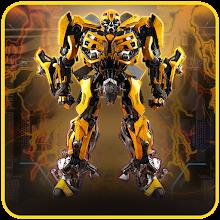Among the recurring themes in role-playing discussions and forums, turn-based mechanics remain one of the most debated topics. This classic RPG format has long competed with action-oriented systems, and the recent release of Clair Obscur: Expedition 33 has reignited conversations about the evolution of genre mainstays.
Launched last week, Clair Obscur: Expedition 33 has earned widespread critical praise—including from IGN—for its ambitious take on RPG mechanics. The game proudly embraces its influences, featuring turn-based combat, Pictos (equippable abilities), dungeon exploration, and an overworld map, all while introducing fresh twists.
Blending Tradition and Innovation
In an interview with RPGsite, producer François Meurisse explained that Clair Obscur was always envisioned as a turn-based RPG, drawing inspiration from classics like Final Fantasy VIII, IX, and X. However, it also incorporates modern mechanics reminiscent of Sekiro: Shadows Die Twice and the Mario & Luigi series, such as quick-time events for attacks and defensive parrying/dodging.
The result? A system that retains the strategic depth of traditional turn-based combat while injecting real-time interactivity. Naturally, this hybrid approach has sparked discussion—particularly among fans nostalgic for older Final Fantasy titles.
The Turn-Based Debate Heats Up
Social media has erupted with commentary, using Clair Obscur's success as validation for turn-based RPGs amid a shift toward action-oriented design. This debate echoes remarks made by Final Fantasy XVI producer Naoki Yoshida, who previously questioned whether turn-based combat still resonates with modern audiences.
“I grew up with command-based RPGs and understand their appeal,” Yoshida told Famitsu (via VGC). “But in recent years, I’ve noticed increasing skepticism—especially from younger players—about selecting commands in games.”
This philosophy has manifested in recent Final Fantasy entries like XV, XVI, and the VII Remake series, which have polarized fans with their action-driven gameplay. Some lament the shift, while others praise the franchise for evolving.
Yet Clair Obscur serves as a reminder that turn-based mechanics still hold appeal. Its breakout success—achieving 1 million sales in three days—raises questions about whether Final Fantasy should reconsider its direction. However, the reality is more nuanced.
Square Enix’s Evolving Strategy
While mainline Final Fantasy has embraced action, Square Enix continues supporting turn-based RPGs through series like Octopath Traveler, SaGa, and the upcoming Bravely Default remaster. Dismissing Yoshida’s comments as an outright rejection of turn-based games misses this broader context.
As for whether Clair Obscur proves Final Fantasy should revert to its roots—that’s a flawed comparison. Both franchises have distinct identities. Reducing Clair Obscur to “Final France-tasy” (while amusing) overlooks its unique innovations.
Best Mainline Final Fantasy Games
Best Mainline Final Fantasy Games
This isn’t the first time fans have debated Final Fantasy's identity. Similar discussions arose with 2007’s Lost Odyssey (often called the “true Final Fantasy XIII”), and before that, VI vs. VII debates. The cycle repeats with each new entry.
What Success Really Means
Sales remain a key factor in this discussion. Yoshida himself noted that Final Fantasy XVI's design was influenced by commercial expectations—though he didn’t rule out turn-based mechanics returning in future titles.
Clair Obscur's strong launch demonstrates that well-crafted turn-based RPGs can succeed. Recent hits like Baldur’s Gate 3 and Metaphor: ReFantazio further dispel myths about the format's viability.
Ultimately, Clair Obscur validates Sandfall Interactive's vision—a mid-budget RPG with clear ambition, joining other standout titles like Visions of Mana and Ruined King. Whether it reaches Baldur’s Gate 3-level heights remains to be seen, but its start couldn’t be stronger.
As for Final Fantasy, claiming it needs a radical course correction oversimplifies the issue. Square Enix's recent struggles (FFXVI and FF7 Rebirth's underperformance) reflect industry-wide challenges—ballooning budgets, extended dev cycles—rather than just combat system choices.
The Path Forward: Authenticity Over Imitation
The key takeaway? Great games emerge from conviction, not imitation. Clair Obscur excels not because it mimics Final Fantasy, but because it forges its own path with engaging mechanics, rich world-building, and a stellar soundtrack.
As Larian Studios CEO Swen Vincke aptly put it while discussing Baldur’s Gate 3: “You can invest in high-budget single-player experiences and succeed—if you create something your team truly believes in.” That’s the real lesson here, not rehashing tired debates.














